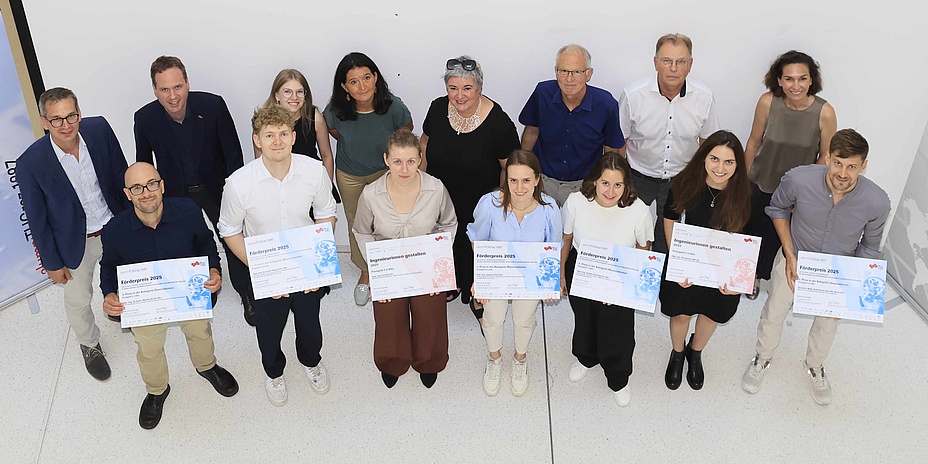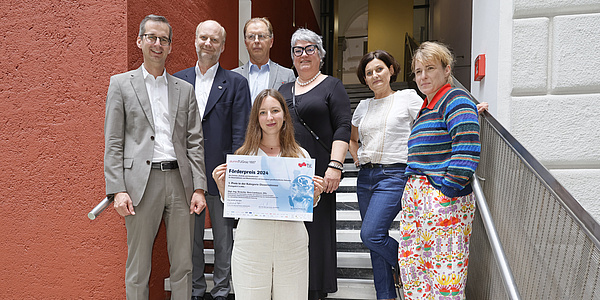Impressive Work at Top Level

This year, the Technology and Society Forum of the alumni association alumniTUGraz 1887 awarded a total of 18,000 euros in three categories – master’s theses, doctoral theses and ‘Female engineers design’. Seven master’s graduates and five engineering doctoral graduates were able to present their results at the final round at TU Graz on 25 June. The jury, supported by public voting, finally singled out eight particularly impressive theses for awards.
Two first prizes in the category master’s theses
The third prize for a master’s thesis went to Sophie Schellander: Using a measurements series with the 7T magnetic resonance imaging (MRI) scanner at Utrecht University Hospital, she demonstrated the correlation of various hand gestures with specific activity patterns in the cerebral cortex. The findings could be incorporated into existing brain-computer interfaces that support fully paralysed people in interacting with their environments.
Two master’s theses were awarded equal first prize: People affected by diseases of the speech apparatus can often only speak in a monotone or completely without modulation with the help of an ‘electric larynx’. In his work, Benedikt Mayrhofer convincingly demonstrated how AI can be used to significantly improve the modulation of pathological speech via output devices.
And Johanna Pirchner impressed the jury with an innovative method for genetically adapting the bacterium Cupriavidus necator, which can metabolise CO2 into biopolymers that can also be used as animal feed enzymes. This brings the promising industrial utilisation of this organism a step closer.
Female engineers design
Cornelia Ott focused on algae-based bioplastics: She investigated whether alginates are suitable as a replacement for the conventional PVC sound insulation films used in many buildings and was awarded one of the two ‘Female engineers design’ prizes. The other prize went to FH Joanneum graduate Bernadette Wernle, who tested whether simple mixed reality games are suitable for care work with dementia patients in her master’s thesis, focusing on user-friendliness.
The best doctoral theses
Particulate pollution from cars could be drastically reduced if the 10% of outdated cars that are responsible for 80% of particulate emissions were taken off the road. Markus Knoll received the 3rd prize in the category doctoral thesis for his portable exhaust gas measurement system, which can reliably measure particulate matter emissions from vehicles in flowing urban traffic.
The 2nd prize went to medical informatics specialist Malte Rolf-Pissarczyk: During his research stay at Stanford University, he developed a method of material and computer modelling that supports and facilitates the monitoring of patients with aortic dissection (splitting of the wall layers of the aorta).
And the winner is: In his doctoral thesis, Andreas-Nizar Granitzer focused on the finite element calculation of construction piles that are anchored in the ground to secure wind turbines or residential buildings. Until now, their numerical calculation involved considerable effort. Granitzer’s innovative, resource-saving method is now being integrated into the geotechnical software ‘Plaxis 3D’, which is used worldwide. The researcher has already received an ‘Award of Excellence’ from the Ministry of Science for his work. And now also the 1st prize in the category doctoral theses from the Technology and Society Forum.
Further information about the award
You can find this article and other articles to browse through in TU Graz people #93, the magazine for TU Graz employees and interested parties.




